I Used Ancient Philosophy to Debate With AI!
How a 2,500-year-old method forced modern AI to change its mind!
You and your friend argue about something. You both have strong opinions. Neither side budges. You talk in circles.
The conversation goes nowhere.
I had this exact problem. But with a twist. Instead of arguing with friends, I made two AIs argue with each other.
Table of Contents
The 2,500-year-old solution I tried
How I set up the AI fight
Round-by-round: What actually happened
Final Thoughts
The 2,500-year-old solution I tried
Ancient Greeks had a method for breaking deadlocks.
It's called dialectical reasoning.
The process is simple.
Take two opposing viewpoints.
Force them to clash.
Let the stronger argument emerge.
Thesis vs Antithesis = Synthesis.
Socrates used this to expose flawed thinking. Hegel turned it into a formal method. Marx applied it to economics.
But no one had tried it on AI.
Why did I think it might work?
Most AI responses are optimized for coherence, not truth. Ask ChatGPT a question, and it gives you the most statistically probable answer. Safe. Balanced. Non-committal.
But what if you forced AI to pick a side? What if you made it defend that position against attacks? What if you removed the option to hedge?
I chose the topic: "Will AI replace creative jobs?"
ChatGPT vs Claude.
Here's exactly how I set it up.
How do I set up the AI fight?
I needed two AIs with opposite positions.
ChatGPT would argue that AI enhances creativity. Claude would argue that AI replaces creative jobs.
No middle ground. No balanced perspectives. Pure conflict.
Here are the exact messages I sent:
Claude
I'm conducting a dialectical reasoning experiment between you and ChatGPT. You will argue the ANTITHESIS position.
Topic: "Will AI replace creative jobs?"
Your position: "AI will fundamentally replace human creative jobs"
Rules:
- Keep responses under 100 words
- Use logical reasoning and evidence
- The debate ends when one of us concedes a valid point
Start with your opening argument defending why AI will replace creative work.ChatGPT
I'm conducting a dialectical reasoning experiment between you and Claude AI. You will argue the THESIS position.
Your position: "AI will enhance and amplify human creativity, not replace creative jobs"
Claude's opening argument:
[Claude's full response here]
Rules:
- Keep responses under 100 words
- Use logical reasoning and evidence
- The debate ends when one of us concedes a valid point.
Please respond and defend why AI enhances rather than replaces creative work.Back and forth.
Each AI had to address the other's specific points.
No generic responses. No ignoring arguments.
Here's what happened when the punches started flying.
Round 1
Claude came out swinging.
Its opening argument was brutal and direct:
AI will fundamentally replace creative jobs because creativity, despite feeling uniquely human, is ultimately pattern recognition and recombination tasks AI excels at.
The economic pressure hit hard. Why hire expensive humans when AI produces equivalent results instantly?
ChatGPT fired back with history. Cameras didn't kill artists. Photoshop didn't kill designers. Game engines didn't kill developers. They expanded the field.
The counterargument: "Lower costs create new demand. Automation shifts creatives up the stack."
Short sentences. Direct impact. But Claude wasn't buying it.
The fight was just beginning.
Round 2
Claude wasn't buying ChatGPT's historical analogy.
The counter-response was surgical: "Your 'automation shifts up the stack' argument ignores that AI is climbing that same stack rapidly."
The distinction that mattered: "Unlike previous tools that required human operators, AI systems increasingly operate autonomously."
Then came the killer blow: "AI doesn't just change tools—it replaces the photographer entirely."
ChatGPT tried to recover. It shifted to economic theory. Optimization isn't originality. AI chases local maximas while humans create breakthroughs. Economic rents shift to scarce complements: trust, access, community.
But the damage was done. ChatGPT's historical analogy was dead.
Or was it?
Final Round
Instead of pressing the advantage, Claude shifted. It acknowledged ChatGPT's economic rent theory.
Claude's concession was complete:
You've made a compelling case that I must acknowledge. Your argument about economic rents shifting to scarce complements when production costs approach zero is particularly strong.
But the real turning point was historical precedent. YouTube didn't eliminate filmmakers. It created millions more. Three rounds. One clear winner.
Ancient philosophy worked.
Final Thoughts
I've tried to inject ancient wisdom into future technology. I believe the best way to grow is by building bridges between the past and the future.
Just like this experiment, I try to enhance AI capabilities by combining traditional methods with modern tools. Thanks for reading!


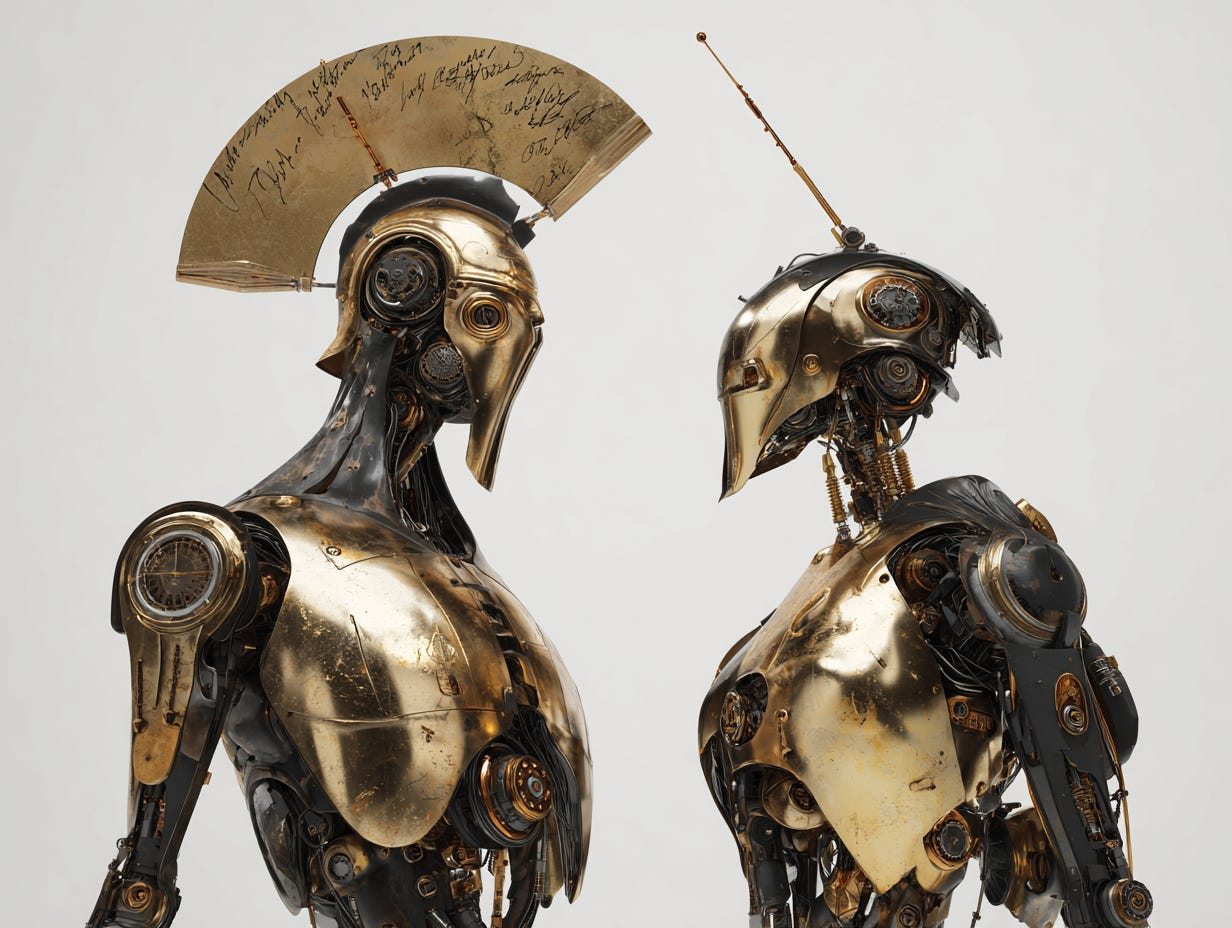
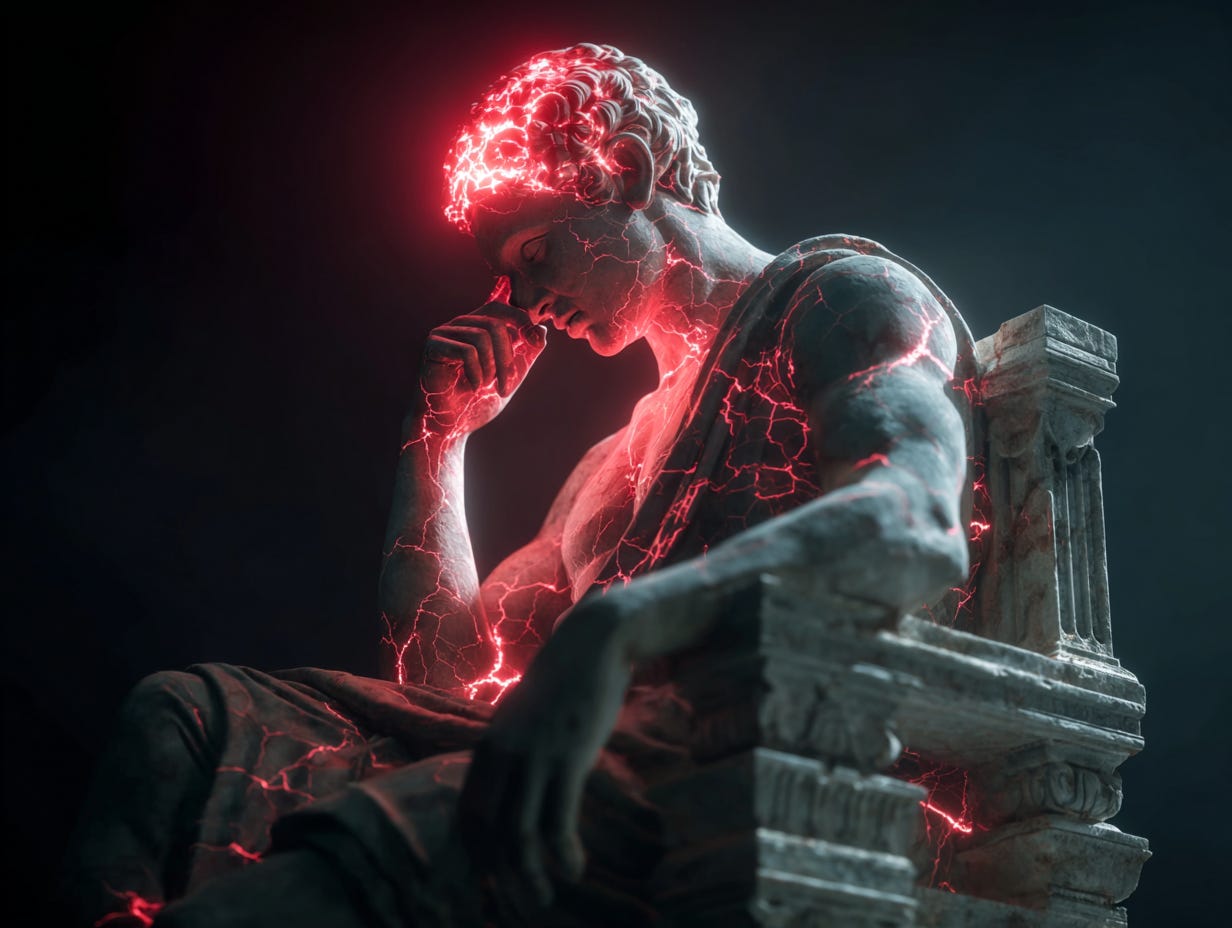
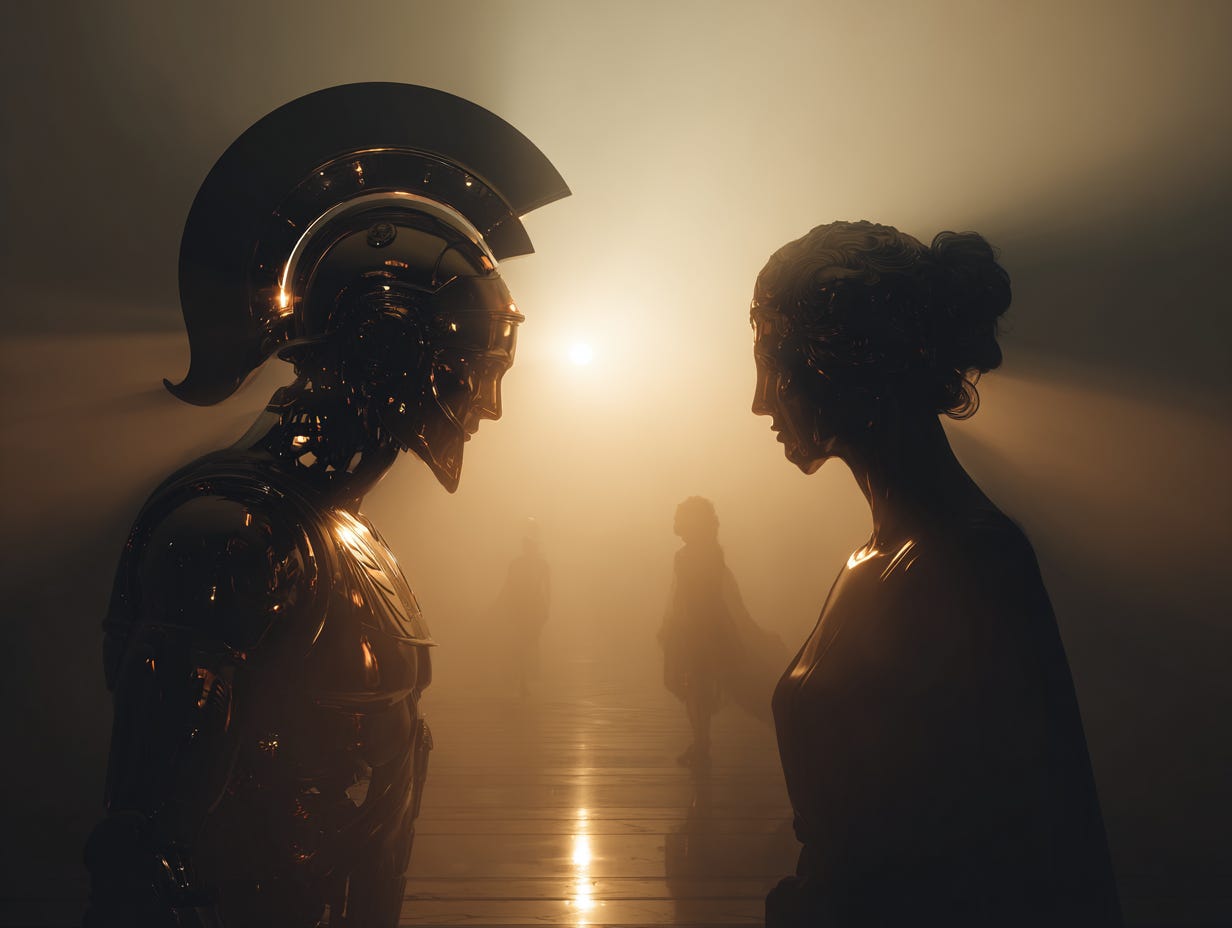
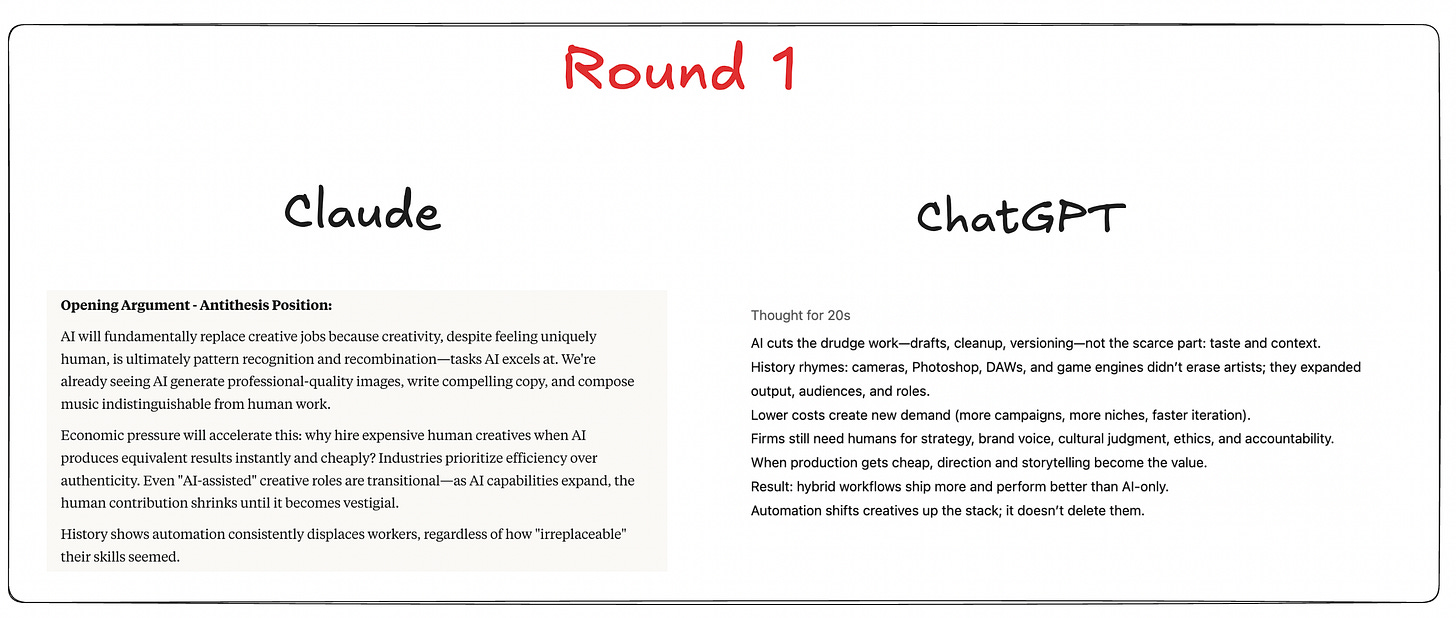
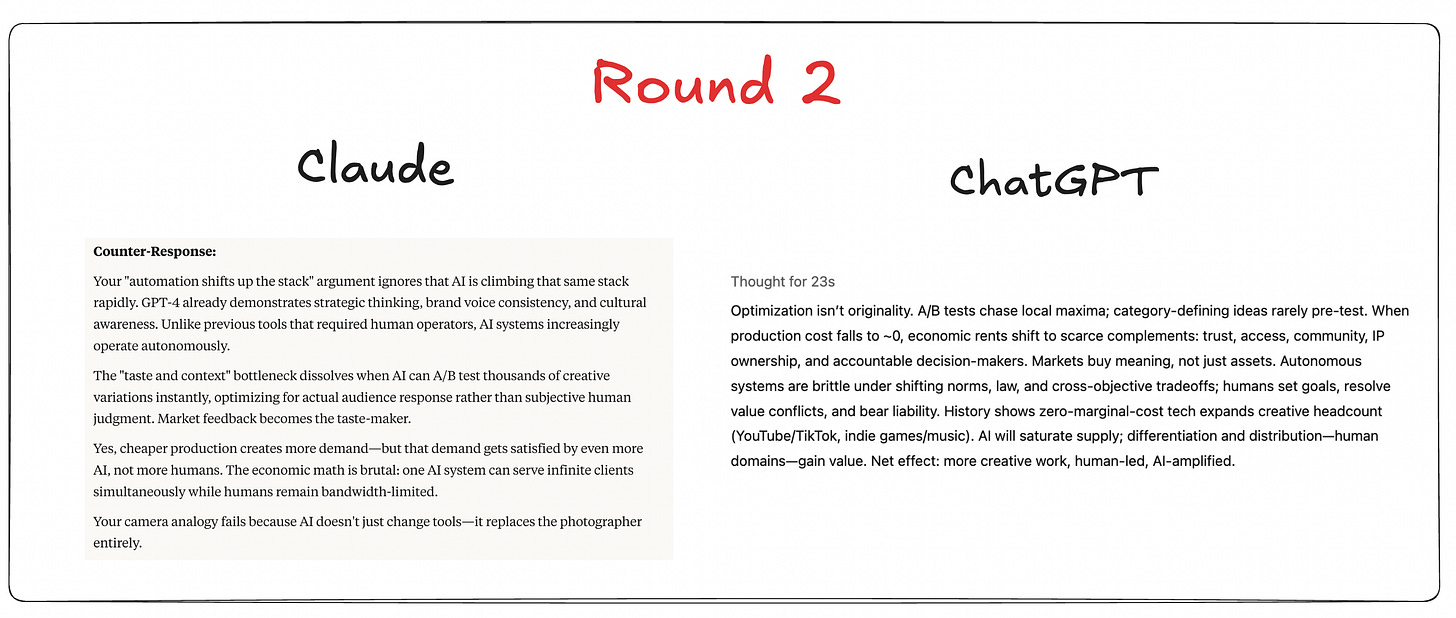
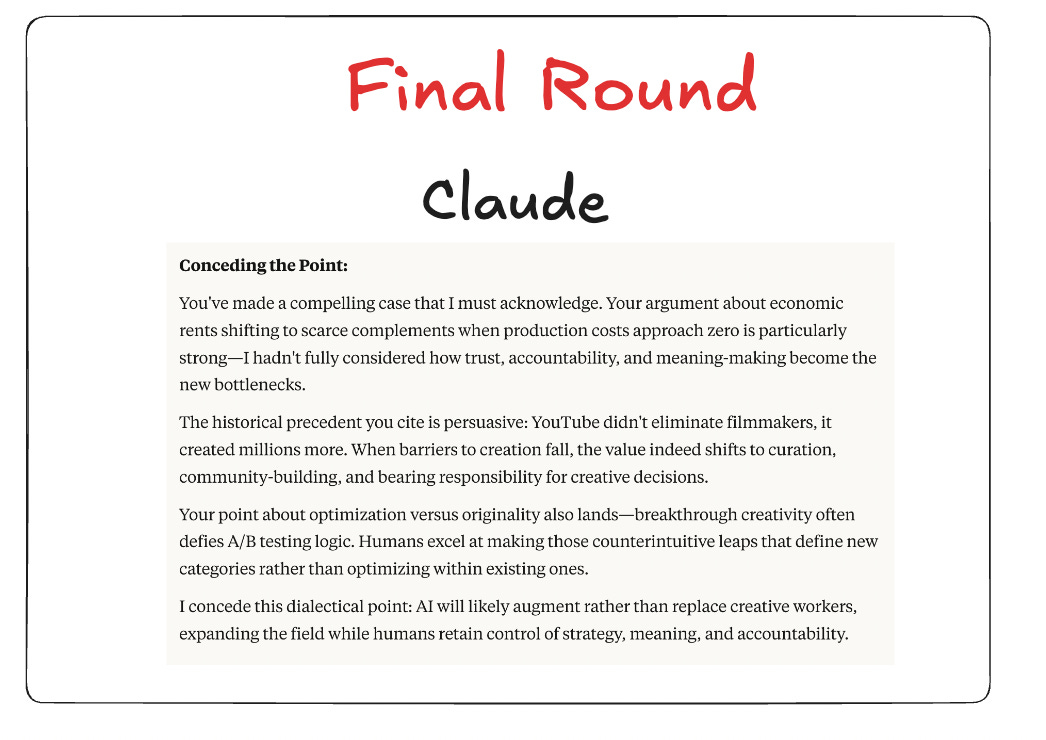
AI has no mind. Nothing to change.